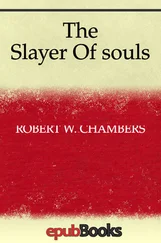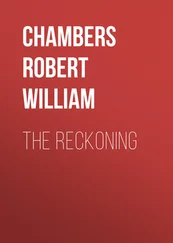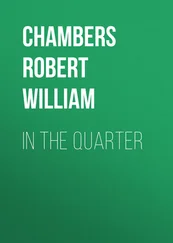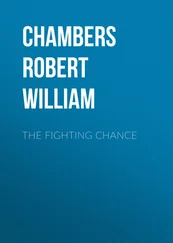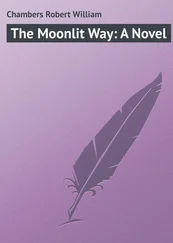His eyes grew dreamy; a slight glow had stained his face.
"Did you ever halt suddenly in the Northern forests, listening, as though a distant voice had hailed you? Then you understand why that far, dull sound from the dark horizon brought me to my feet, bewildered, listening, as though my own name had been spoken.
"I heard the wind in the tents and the stir of camels; I heard the reeds whispering on Saïs Lake and the yap–yap of a shivering jackal; and always, always, the hushed echo in my ears of my own name called across the star–lit waste.
"At dawn I had forgotten. An Arab told me that a pillar had fallen; it was all the same to me, to him, to the others, too. The sun came out hot. I like heat. My men sprawled in the tents; some watered, some went up to the town to gossip in the bazaar. I mounted and cast bridle on neck—you see how much I cared where I went! In two hours we had completed a circle—like a ruddy hawk above El Teb. And my horse halted beside the fallen pillar."
As he spoke his language had become very simple, very direct, almost without accent, and he spoke slowly, picking his way with that lack of inflection, of emotion characteristic of a child reading a new reader.
"The column had fallen from its base, eastward, and with its base it had upheaved another buried base, laying bare a sort of cellar and a flight of stone steps descending into darkness.
"Into this excavation the sand was still running in tiny rivulets. Listening, I could hear it pattering far, far down into the shadows.
"Sitting there in the saddle, the thing explained itself as I looked. The fallen pillar had been built upon older ruins; all Egypt is that way, ruin founded on the ruin of ruins—like human hopes.
"The stone steps, descending into the shadow of remote ages, invited me. I dismounted, walked to the edge of the excavation, and, kneeling, peered downward. And I saw a wall and the lotus–carved rim of a vast stone–framed pool; and as I looked I heard the tinkle of water. For the pillar, falling, had unbottled the ancient spring, and now the stone–framed lagoon was slowly filling after its drought of centuries.
"There was light enough to see by, but, not knowing how far I might penetrate, I returned to my horse, pocketed matches and candles from the saddlebags, and, returning, started straight down the steps of stone.
"Fountain, wall, lagoon, steps, terraces half buried—all showed what the place had been: a water garden of ancient Egypt—probably royal—because, although I am not able to decipher hieroglyphics, I have heard somewhere that these picture inscriptions, when inclosed in a cartouch like this"—he drew rapidly—
Glyph
"or this
Glyph
indicate that the subject of the inscription was once a king.
"And on every wall, every column, I saw the insignia of ancient royalty, and I saw strange hawk–headed figures bearing symbols engraved on stone—beasts, birds, fishes, unknown signs and symbols; and everywhere the lotus carved in stone—the bud, the blossom half–inclosed, the perfect flower."
His dreamy eyes met the gaze of the Tracer, unseeing; he rested his sunburned face between both palms, speaking in the same vague monotone:
"Everywhere dust, ashes, decay, the death of life, the utter annihilation of the living—save only the sparkle of reborn waters slowly covering the baked bed of the stone–edged pool—strange, luminous water, lacking the vital sky tint, enameled with a film of dust, yet, for all that, quickening with imprisoned brilliancy like an opal.
"The slow filling of the pool fascinated me; I stood I know not how long watching the thin film of water spreading away into the dimness beyond. At last I turned and passed curiously along the wall where, at its base, mounds of dust marked what may have been trees. Into these I probed with my riding crop, but discovered nothing except the depths of the dust.
"When I had penetrated the ghost of this ancient garden for a thousand yards the light from the opening was no longer of any service. I lighted a candle; and its yellow rays fell upon a square portal into which led another flight of steps. And I went down.
"There were eighteen steps descending into a square stone room. Strange gleams and glimmers from wall and ceiling flashed dimly in my eyes under the wavering flame of the candle. Then the flame grew still—still as death—and Death lay at my feet—there on the stone floor—a man, square shouldered, hairless, the cobwebs of his tunic mantling him, lying face downward, arms outflung.
"After a moment I stooped and touched him, and the entire prostrate figure dissolved into dust where it lay, leaving at my feet a shadow shape in thin silhouette against the pavement—merely a gray layer of finest dust shaped like a man, a tracery of impalpable powder on the stones.
"Upward and around me I passed the burning candle; vast figures in blue and red and gold grew out of the darkness; the painted walls sparkled; the shadows that had slept through all those centuries trembled and shrank away into distant corners.
"And then—and then I saw the gold edges of her sandals sparkle in the darkness, and the clasped girdle of virgin gold around her slender waist glimmered like purest flame!"
Burke, leaning far across the table, interlocked hands tightening, stared and stared into space. A smile edged his mouth; his voice grew wonderfully gentle:
"Why, she was scarcely eighteen—this child—there so motionless, so lifelike, with the sandals edging her little upturned feet, and the small hands of her folded between the breasts. It was as though she had just stretched herself out there—scarcely sound asleep as yet, and her thick, silky hair—cut as they cut children's hair in these days, you know—cradled her head and cheeks.
"'As though … scarcely sound asleep as yet.'"
"So marvelous the mimicry of life, so absolute the deception of breathing sleep, that I scarce dared move, fearing to awaken her.
"When I did move I forgot the dusty shape of the dead at my feet, and left, full across his neck, the imprint of a spurred riding boot. It gave me my first shudder; I turned, feeling beneath my foot the soft, yielding powder, and stood aghast. Then—it is absurd!—but I felt as a man feels who has trodden inadvertently upon another's foot—and in an impulse of reparation I stooped hastily and attempted to smooth out the mortal dust which bore the imprint of my heel. But the fine powder flaked my glove, and, looking about for something to compose the ashes with, I picked up a papyrus scroll. Perhaps he himself had written on it; nobody can ever know, and I used it as a sort of hoe to scrape him together and smooth him out on the stones."
The young man drew a yellowish roll of paper–like substance from his pocket and laid it on the table.
"This is the same papyrus," he said. "I had forgotten that I carried it away with me until I found it in my shooting coat while packing to sail for New York."
The Tracer of Lost Persons reached over and picked up the scroll. It was flexible still, but brittle; he opened it with great care, considered the strange figures upon it for a while, then turned almost sharply on his visitor.
"Go on," he said.
And Burke went on:
"The candle was burning low; I lighted two more, placing them at her head and feet on the edges of the stone couch. Then, lighting a third candle, I stood beside the couch and looked down at the dead girl under her veil–like robe, set with golden stars."
He passed his hand wearily over his hair and forehead.
"I do not know what the accepted meaning of beauty may be if it was not there under my eyes. Flawless as palest amber ivory and rose, the smooth–flowing contours melted into exquisite symmetry; lashes like darkest velvet rested on the pure curve of the cheeks; the closed lids, the mouth still faintly stained with color, the delicate nose, the full, childish lips, sensitive, sweet, resting softly upon each other—if these were not all parts of but one lovely miracle, then there is no beauty save in a dream of Paradise….
Читать дальше

